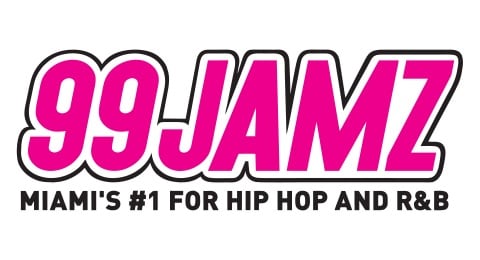The NCAA and power conferences are revising rules around roster limits in hopes of appeasing a federal judge.
According to a filing made Wednesday in the House settlement case, schools will be permitted to grandfather-in a range of athletes: (1) those currently on a roster; (2) those athletes who have already been cut this year; and (3) those high school recruits who enrolled at a school after committing to a roster position only to see it eliminated. As Yahoo Sports reported last week, the revision is not mandatory but is at each school’s discretion — a move that is seen as a compromise from the power leagues to the judge’s wishes.
The grandfathered-in athletes are exempt from roster limits at any school in which they participate. For instance, if their current school chooses against retaining them, those athletes who qualify to be grandfathered-in can transfer and remain exempt from their new school’s roster limits.
As part of the revision, a school would be expected to track their protected/grandfathered-in roster spots with a rolling list of exceptions. Those protected athletes would presumably roll off the exception list as their eligibility expires. These exceptions would permit a school to exceed roster limits tied to the settlement.
It remains unclear if California Judge Claudia Wilken will accept the changes and approve the House settlement — a landmark agreement that would usher into the industry direct revenue sharing with athletes starting July 1. In the latest chapter of a winding, year-long effort to gain approval of the settlement, Wilken ordered the parties — the defendants (NCAA and power leagues) and plaintiff attorneys — to revise one of the most-criticized portions of the settlement agreement: new roster limits, a concept that stands to cost thousands of players their roster spots.
Wilken gave attorneys two weeks to amend the roster limits, recommending a phasing-in or/and grandfathering-in concept to protect spots for those athletes on existing rosters. During the course of several meetings this week, executives from the Big Ten, SEC, ACC and Big 12 agreed to a grandfathering-in model, but one that is optional for schools — a decision that comes with risk and one that is expected to elicit public pushback from a group of attorneys and athletes who have objected to the roster limits.
These objectors — most notably attorneys Laura Reathaford and Steve Molo — may hold influence over the judge’s decision. In her order on April 29, she required the NCAA and power leagues to negotiate with the objectors through a mediator in reaching a compromise on revisions to roster limits. The optionality of the roster limits is expected to be a point of contention with the objecting attorneys who hoped for a mandatory phasing-in concept or a delay in the roster limit implementation, according to those familiar with the negotiations.
However, a mandated protection of roster spots means exceeding existing policies. According to current NCAA rules, roster spots are not guaranteed or protected like scholarships.
A decision on the settlement now rests with Wilken, the 75-year-old presiding judge who holds the power to bring a windfall of billions of dollars to current and future athletes in revenue sharing as well as $2.8 billion in back-pay to former athletes.
If the settlement is approved — she can make a decision whenever she pleases — it will trigger a planned rollout of the revenue-sharing concept or, if denied, would further thrust the industry into upheaval as schools scramble to compensate athletes without the legal protection and rules of the settlement.
It’s not clear if Wilken will, for a second time, offer attorneys another chance to revise the settlement agreement.
A denial would be a historically stunning move from a judge who just recently described the settlement as “good.” Such a decision could jeopardize the sustainability and future of college athletics under the umbrella of the NCAA and further sink college sports into uncertainty around athlete compensation.
For months now, industry leaders have made decisions with the assumption of settlement approval. The NCAA and power leagues spent a significant amount of time and resources on a new framework and enforcement entity to regulate the revenue-sharing concept. Schools have been bracing to share upwards of $20 million annually with their athletes. They created revenue-sharing agreements, signed athletes to them and expected to begin payments July 1.
A settlement denial may not change those plans.
More than a half-dozen state laws permit schools to directly pay college athletes — legislation likely purposely proposed as a backup plan if the settlement crumbled. Several athletic administrators who spoke to Yahoo Sports expect to soon begin paying athletes using their state laws if the settlement is denied — a way to skirt NCAA rules that, currently, prohibit direct payments.
“What can the NCAA do about it?” asked one power conference athletic director.
“We’ve all built our budgets going forward for rev-share,” says another AD. “Those that don’t have state laws will get one immediately.”
The new enforcement entity, built by the power conferences to regulate the revenue-sharing concept, is likely to continue to manage and oversee school payments to athletes. The entity featured a cap-management system and a clearinghouse charged with scrutinizing booster-backed NIL agreements with players.
However, any college compensation system would face a grim reality: It is not protected by a legally binding settlement agreement to enforce rules and regulations.
A denial would also launch the case into what is likely to be a years-long court battle.
It’s the exact thing the NCAA and its richest, most influential conferences wanted to avoid. Unsuccessful in so many legal battles recently — most notably a 9-0 loss in a 2021 Supreme Court decision — college leaders struck the settlement as a way not to risk a court defeat that might cost them as much as $10 billion.
But one final option looms: Congressional action.
Would lawmakers, if the deal is denied, be more open to producing legislation to provide the NCAA and power conferences with a more regulated compensation system? Though five U.S. senators have been meeting regularly in serious negotiations over legislation, no agreement has been reached. U.S. President Donald Trump has told college stakeholders that he plans to get involved, and U.S. Sen. Tommy Tuberville recently revealed that Trump was at least exploring an executive order related to college athletics.
A settlement denial may also extend a chaotic period.
Schools have spent the last few weeks hurriedly signing basketball and football players in a desperate attempt to strike deals before the settlement's approval. Contracts signed before the presumptive settlement approval and paid out before July 1 are not subject to the newly created NIL clearinghouse or rev-share cap, leading to a "mad dash" in the basketball and football portal.
Though the portal windows have closed, the enforceability of the portal is in question after a Wisconsin player in January transferred to Miami outside of the portal window and after signing a revenue-share contract with the school.











